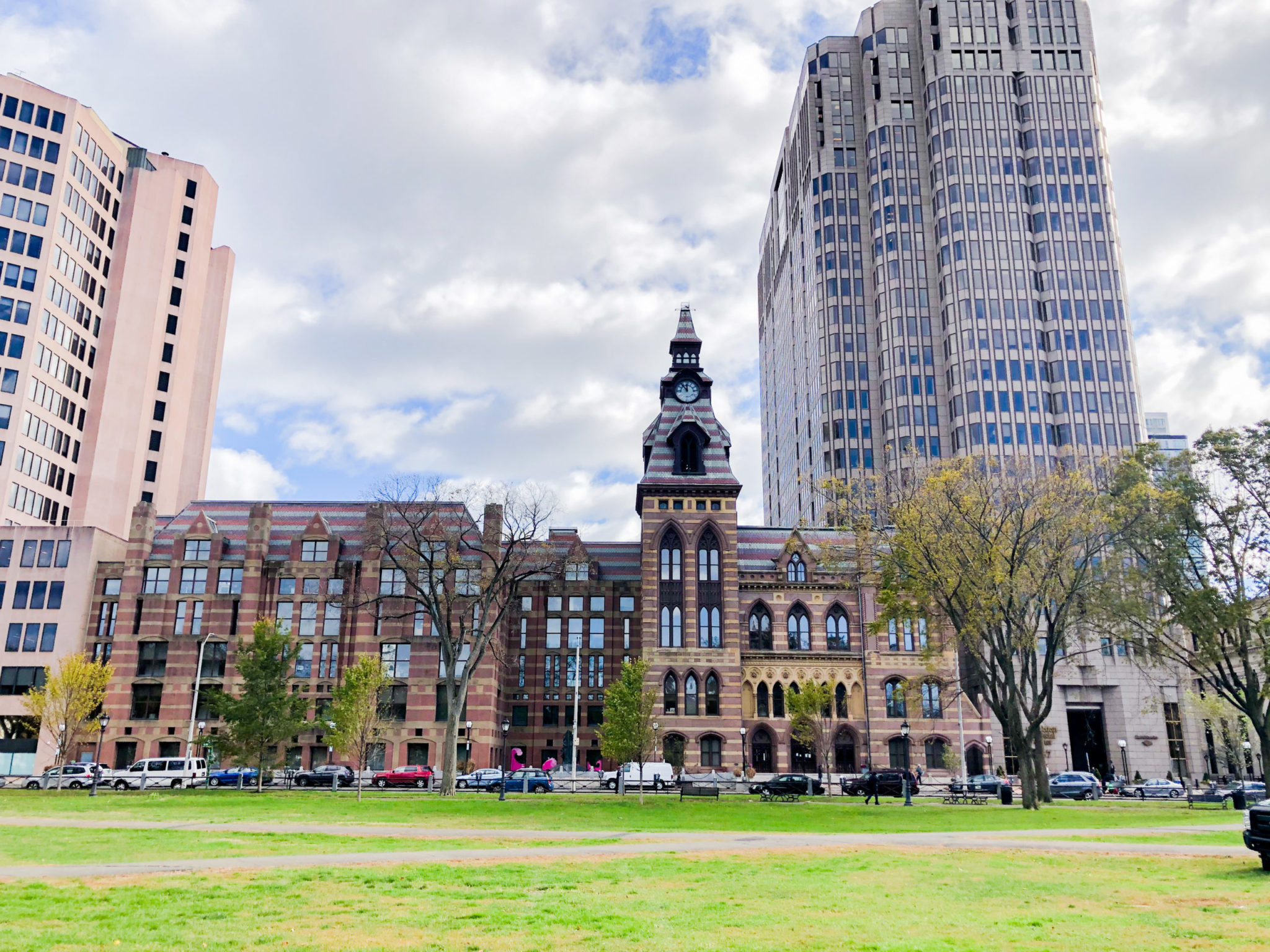New Haven prepares Community Crisis Response Team to respond to police calls
City Hall has been holding town halls to gather input for New Haven’s planned Community Crisis Response Team.

Jessie Cheung, Staff Photographer
New Haven City Hall is rethinking what public safety and policing should look like through the proposed creation of a Community Crisis Response Team, or CCRT.
The CCRT is “an additional first response unit specializing in de-escalation, harm reduction, and providing rapid access to social services during moments of distress,” according to a press release distributed by city spokesperson Kyle Buda. In New Haven, 911 receivers get around 100,000 calls each year. City officials estimate that the new CCRT could respond to about 11,000 of these calls. This week, the city hosted two CCRT virtual town halls to hear the community’s ideas and concerns about the team. A third town hall will take place on Thursday at 5:30 p.m. at James Hillhouse High School. During the first two meetings, the hosts said that all comments would be kept anonymous, so that individuals would feel comfortable to speak about their experiences freely.
“In 2020, after the murder of George Floyd and many of the protests that occurred, we started to have a deeper conversation,” Mayor Justin Elicker said during the first of three town halls. “Not only about policing but what first response means and how to support people.”
Elicker said that in the summer of 2020, a team of city officials began analyzing crisis response policies across the nation. They became interested in the idea of substituting a police response for a more appropriate one in cases of mental health crises and other non-violent situations, he said.
A one-year pilot project of the CCRT would be supported by two million dollars in state aid, the city and the Connecticut Mental Health Center, according to Elicker. But before its rollout, the city government is seeking community input through town halls, drop boxes and several other channels. The city is also looking for citizens to help oversee and ensure the accountability of the team.
The first two town halls each drew around 60 New Haven residents. They both focused on two inquiries: identifying issues with the Elm City’s current emergency response services and considering what a crisis response team should look like.
At the town halls, residents expressed mixed opinions on the New Haven Police Department’s current ability to respond to non-violent situations. For example, one individual described that while her husband was hallucinating, he called the police because he thought his neighbors were partying in his pool.
“The police were wonderful,” an anonymous individual said. “They recognized the signs of someone detoxing. … They stayed with him, and they spoke with him, and they calmed him down.”
Another resident described a very different experience when she called the police for her son, who has a mental illness and was in crisis. When the police arrived, her son was not complying with their requests for him to show his hands, at which point the officer drew their gun. She remembered saying to the officer “I called for help. You’re not planning to shoot my son in my own living room.”
A probation officer at the town hall said that there is a program run by the Connecticut Alliance to Benefit Law Enforcement that helps officers learn how to better deal with mental health crises, but that this program is done voluntarily.
Town hall participants largely emphasized that a potential crisis response team should include non-police presence and foster collaboration between law enforcement and social workers.
“We talked about having a licensed clinician or social worker, like a community support specialist,” one resident explained. “That way they can go and assess with the officer or EMT when it is needed.”
Another speaker suggested a system in which officers would go out on certain calls alongside social workers or clinicians.
“It could help with the deescalation of any issue that might arise,” they said. “Sometimes we just need someone to go with us and to help assess [the situation].”
The same individual also echoed the general sentiment that insufficiently trained officers are often unable to respond to certain crises and can make them worse.
“You know, a lot of people have bad experiences with officers, and that leads to trauma,” they added.
Mayor Elicker initially announced the city’s intention to create a crisis response team in August of 2020.







